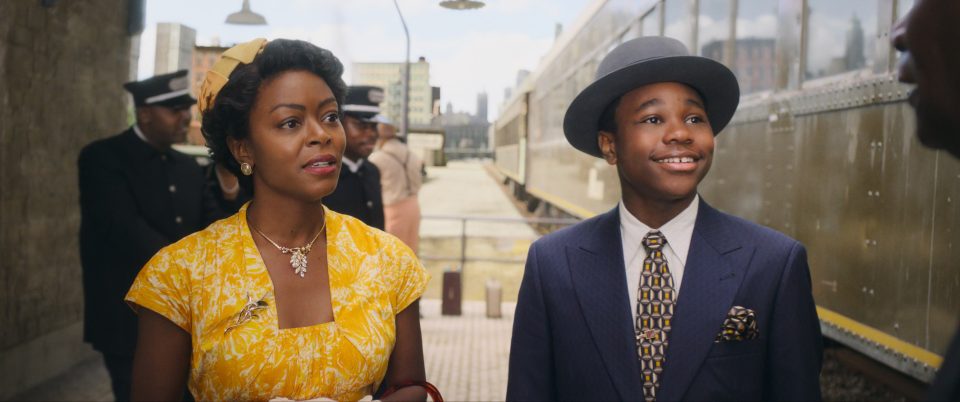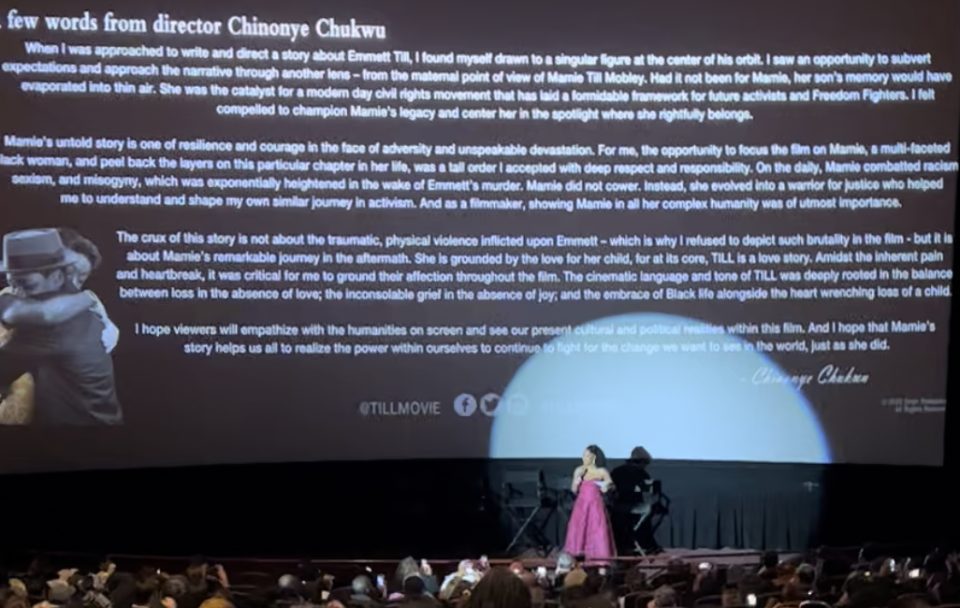
Till tells the story of Emmet Till who was lynched in Mississippi in 1955 when he was 14 years old. The story of Emmett Till is etched in the anals of American history and its impact is far-reaching. What’s unique about stories like this is that they tend to become lore and on some level the humanity is diminished. Till restores the humanity of Emmet Till’s story by centering on the perspective of his mother Mamie Till-Mobley who forced the world to look at the carnage of racism.
The decision by the director Chinonye Chukwu to focus on Mamie Till Mobley allows the viewer an opportunity to experience the weight of such a tragedy and the courage it took to allow the world to see what was done to her son. Chukwu also chose not to show any outward violence toward Black people on screen as not to add to the trauma of Black people.
“The crux of this story is not about the traumatic, physical violence inflicted upon Emmett – which is why I refused to depict such brutality in the film – but it is about Mamie’s remarkable journey in the aftermath,” stated Chukwu in a statement shown on screen before the start of the film.

Till written by Michael Reilly, Keith Beauchamp and Chinonye Chukwu opens up with Mamie Till Mobley and Emmett in the car singing a song. Mamie’s eyes are filled with a mixture of joy and sadness. On the screen, the emotions come across as a premonition. Danielle Deadwyler channels Mamie in a way that emanates through her eyes allowing her emotions to be felt genuinely.
Chukwu does not shy away from the heaviness of the subject matter. What she does is tell the story in a way that explains many of the tough choices that were made in the moment that Emmett was kidnapped from his family’s home in Mississippi.
Till addresses the conversations of the antilynching law that was proposed after Emmett’s murder. It also tackles the idea of voting rights sparking the outrage of white people that led to the terrorism that was and is still inflicted on Black bodies across the nation. The Emmett Till Antilynching Act was signed into law in 2022, 67 years after Emmett’s murder.
Chukwu approaches this work with a high level of care and sensitivity. She manages to maintain that caliber of concern throughout the film while simultaneously pulling back the curtain on the horror that the United States has allowed to exist over hundreds of years.
The film shot at Tyler Perry’s studios in Atlanta is a composition of beautifully shot scenes, a solid script and award-winning performances. Danielle Deadwyler’s performance of Mamie is captivating and will likely be in the running for a number of awards.
There may be some apprehension when considering seeing Till, however, watching this film through Mrs. Mobley’s lens is something that needs to be seen to push the culture and nation forward.

















